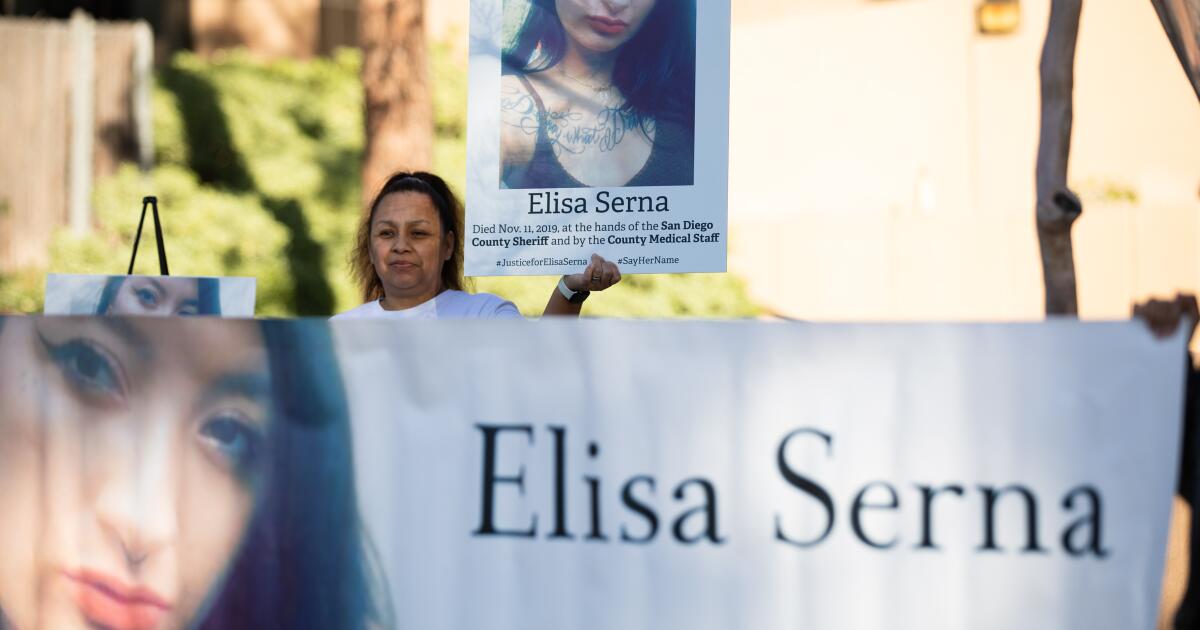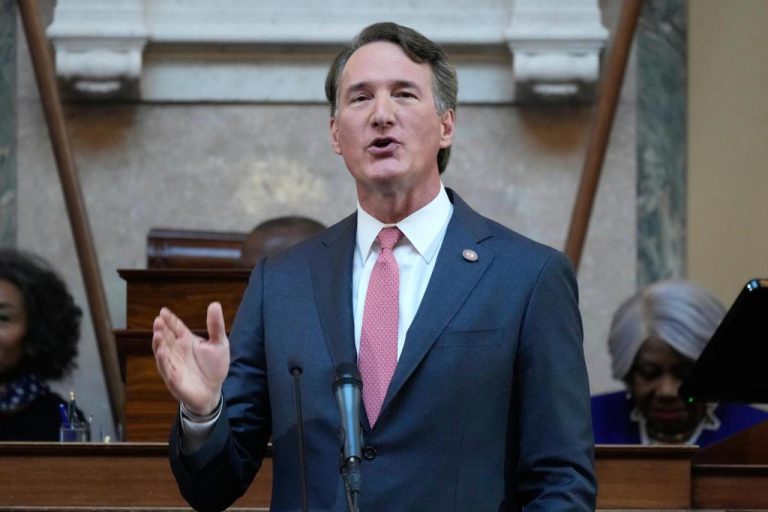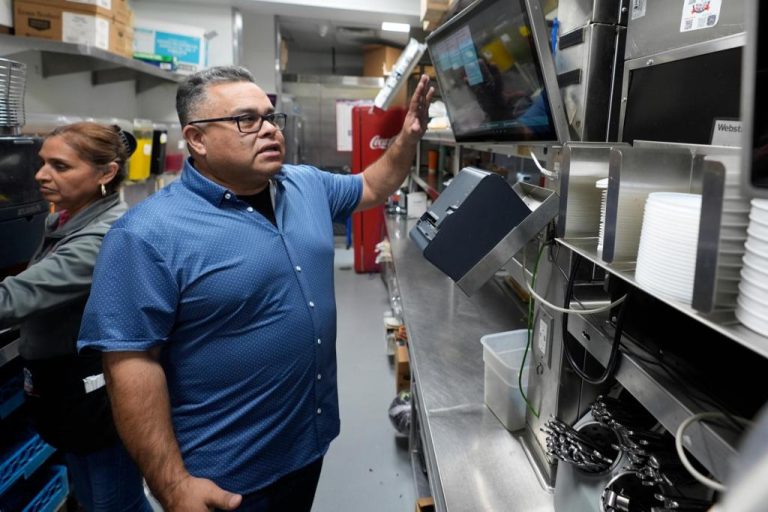
In the five years since Elisa Serna died alone on the floor of her cell in the Las Colinas women’s jail, San Diego County officials have refused to release video and other evidence showing what happened to the 24-year-old pregnant woman in her final hours.
Even though a doctor and nurse were criminally charged in relation to Serna’s death — and some of the videos were shown in open court — San Diego County lawyers have insisted the material remain sealed from public view.
The San Diego Union-Tribune and CBS News 8 are now seeking to intervene in the civil case filed by Serna’s family in order to ask a federal judge to reverse an earlier decision to seal the evidence and instead make it available to the public.
“The court should allow proposed media intervenors to intervene for the limited purpose of seeking to unseal evidence used in the parties’ (court filings),” the motion submitted this week to U.S. District Court Judge Larry A. Burns says.
“Plaintiffs agreed to not oppose this motion, while each of the defendants did not agree,” the filing adds.
Lora Cicalo, senior editor of the Union-Tribune, said the evidence in question was shown in open court and is clearly part of the public record.
“This order, should it stand, would set a dangerous precedent that could lead to other judges being more inclined to block media access to court records and evidence in the future,” Cicalo said.
San Diego County declined to comment on the news organizations’ request to intervene in the case.
Paloma Serna, the late woman’s mother, said transparency is essential to any legal proceeding and the public has a right to access all of the relevant information that would help them understand the case better.
“It is important to me that the records and evidence are made available to the public so that they can form their opinions based on factual and complete information,” she told the Union-Tribune. “Elisa Serna deserves justice along with the other impacted families.”
Serna died Nov. 11, 2019, five days after she was arrested on suspicion of theft and drug charges, according to the Sheriff’s Department. She told jail personnel at booking that she had used heroin within the last two hours, but she was not properly treated for withdrawal symptoms, court records show.
After striking her head while collapsing to the floor of her cell, Serna was left alone and found dead an hour later, records show.
Serna was one of 16 people to die in Sheriff’s Department custody in 2019. Dozens have died in San Diego County jails since.
According to a 2022 state audit, 185 people died in San Diego County jails between 2006 and 2020, giving the system one of the highest mortality rates in the state. The audit recommended a slew of changes across the Sheriff’s Department.
The Serna family filed a wrongful-death lawsuit in 2020.

Dr. Fredericke Von Lintig (left) and her attorney Dana Grimes appear in court at the El Cajon courthouse on Wednesday, Oct. 26, 2022. Prosecutors have dropped their criminal case against the doctor over Elisa Serna’s death after a jury failed to reach a verdict.
(Eduardo Contreras/The San Diego Union-Tribune)
A hearing on the matter of unsealing the records was scheduled for Friday even before the news organizations sought to intervene in the case. Lawyers for the Serna family will argue in favor of unsealing the evidence, but it is not clear when the judge will issue a decision.
The motion filed by the Union-Tribune and CBS 8 seeks a May 6 hearing.
San Diego County has so far argued successfully that much of the video, deposition and interview evidence in the Serna case should remain sealed through the criminal proceedings filed against county physician Friederike Von Lintig and nurse Danalee Pascua.
But those criminal cases are now over.
Pascua was acquitted of involuntary manslaughter earlier this year. The jury was unable to reach a verdict on the same charge filed against Von Lintig, and prosecutors decided against pursuing a second trial.
San Diego County has a history of withholding records from plaintiffs suing the government over jail deaths or injuries suffered by people at the hands of sheriff’s deputies.
According to other filings in the Serna family’s long-running civil case, some of the records that are supposed to be sealed were able to be accessed by one of the family’s lawyers during a routine visit to the El Cajon courthouse after the criminal case ended.
“When I asked for photocopies of the contents of the criminal case files, the Superior Court clerk did not ask me for identification,” Serna attorney Grace Jun wrote in a March 20 declaration filed with the federal court.
“She did not ask me for a court order,” Jun added. “She did not inform me that the transcripts of the Pascua interview, or Von Lintig interview, were confidential and under seal.”






